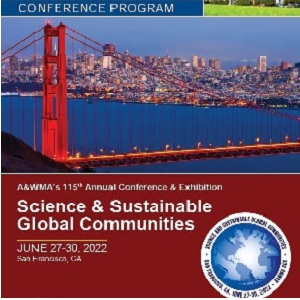Back
Platform
SUST
Session : Sustainable Waste/Materials Management and Circular Economy
1167138 - Economic Analysis of Municipal Solid Waste Management in the U.S. - A State-Level Review and Discussion
Tuesday, June 28, 2022
5:00pm – 5:20pm PT
Location: Seacliff C

Yufan Jiang, PhD student
University of Illinois Chicago
Chicago, IL
Ning Ai, PhD
Associate Professor
University of Illinois at Chicago
Chicago, IL
Primary Author(s)
Co-Author(s)
After the U.S. recycling rates plateaued around 34%-35% in the past decade, the year 2020 marked the first-ever national goal to increase the national recycling rate to 50 percent by 2030. In alignment with the National Recycling Goal, the U.S. Environmental Protection Agency (EPA) released the National Recycling Strategy in November 2021, which explicitly advocates for a “a stronger, more resilient, and cost-effective” recycling system. As municipal solid waste (MSW) management is largely the responsibility of local and state governments, cost-effectiveness actions need to be supported by region-specific analysis.
This study reports on a review of economic analysis of MSW management at the state level in the U.S. and aims to better the understanding of economic implications of boosting recycling rates as well as regional variations. The review covers three sets of state-level documents: waste management laws, plans and plan updates, and academic research or reports on economic impact analysis. The goals are to identify (1) if a state law or plan has included explicit requirements and/or considerations of economic impacts of MSW options; (2) if formal analysis of MSW management has been undertaken in each state; and if yes, (3) what method(s) have been used for economic analysis of MSW; and (4) findings from economic analysis in various states. By reviewing these documents conjointly, this study also aims to identify the planning process of MSW and drivers of cost-effectiveness MSW management.
Initial findings reveal that economic considerations or impact assessment are not required in every state. Only a few states have formally completed an economic analysis of MSW management, and interestingly, not all of them are state-mandated. There are also considerable inconsistencies in economic analysis, in terms of methods (e.g., cost benefit analysis, full cost accounting, fiscal impact analysis, EPA WARM model based), scope (geographic boundaries and types of economic impacts), and metrics (quantitative vs. qualitative). Consequently, the results of recycling impacts may not be directly comparable across regions. This study highlights the key characteristics and challenges of state-level economic analysis of MSW management and discusses strategies for future benchmarking studies.
This study reports on a review of economic analysis of MSW management at the state level in the U.S. and aims to better the understanding of economic implications of boosting recycling rates as well as regional variations. The review covers three sets of state-level documents: waste management laws, plans and plan updates, and academic research or reports on economic impact analysis. The goals are to identify (1) if a state law or plan has included explicit requirements and/or considerations of economic impacts of MSW options; (2) if formal analysis of MSW management has been undertaken in each state; and if yes, (3) what method(s) have been used for economic analysis of MSW; and (4) findings from economic analysis in various states. By reviewing these documents conjointly, this study also aims to identify the planning process of MSW and drivers of cost-effectiveness MSW management.
Initial findings reveal that economic considerations or impact assessment are not required in every state. Only a few states have formally completed an economic analysis of MSW management, and interestingly, not all of them are state-mandated. There are also considerable inconsistencies in economic analysis, in terms of methods (e.g., cost benefit analysis, full cost accounting, fiscal impact analysis, EPA WARM model based), scope (geographic boundaries and types of economic impacts), and metrics (quantitative vs. qualitative). Consequently, the results of recycling impacts may not be directly comparable across regions. This study highlights the key characteristics and challenges of state-level economic analysis of MSW management and discusses strategies for future benchmarking studies.

.jpg)
